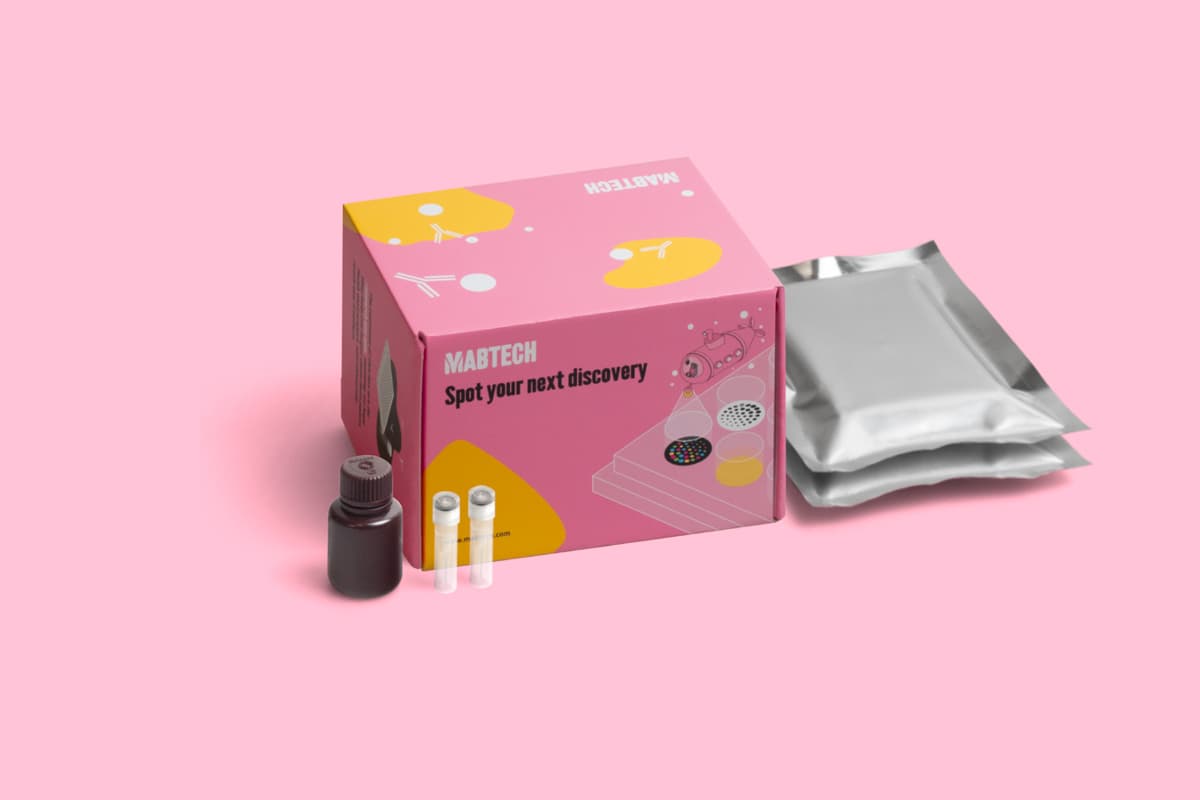ELISpot Plus: Mouse IL‑17A (ALP)
ELISpot Plus: Mouse IL‑17A (ALP)
Components
| Plate | Pre-coated ELISpot plate, white MSIP (mAb IL17-I) |
| Detection mAb | MT2270, biotin |
| Enzyme conjugate | Streptavidin-ALP |
| Substrate | BCIP/NBT-plus |
In stock
Delivery 4-9 business days
Shipping $0
Performance
Documents
Tutorials
Publications (30)
Analyte information
IL-17A
| Analyte description | Interleukin 17A (IL-17A) is a potent proinflammatory cytokine produced by activated Th17 (T helper 17) cells and certain cells belonging to the innate immune system. In mice, IL-17 has also been shown to be produced by activated CD8 T cells and γδ T cells. Th17 cells play an important role in autoimmune diseases and protection against bacteria and fungi. IL-17A acts on a broad range of cell types to induce the expression of cytokines, chemokines, and metalloproteinases. As a result, secretion of IL-17A promotes inflammatory responses, which leads to the recruitment of neutrophils, enhancement of antibody production, and activation of T cells. Increased expression of IL-17A is seen in autoimmune diseases such as multiple sclerosis and rheumatoid arthritis. It is also associated with asthma, psoriasis, cancer, and transplant rejection. |
| Alternative names | Interleukin 17A, IL-17A, IL17A, Ctla-8, Ctla8, IL-17, Il17 |
| Cell type | Th17 |
| Gene ID | 16171 |
